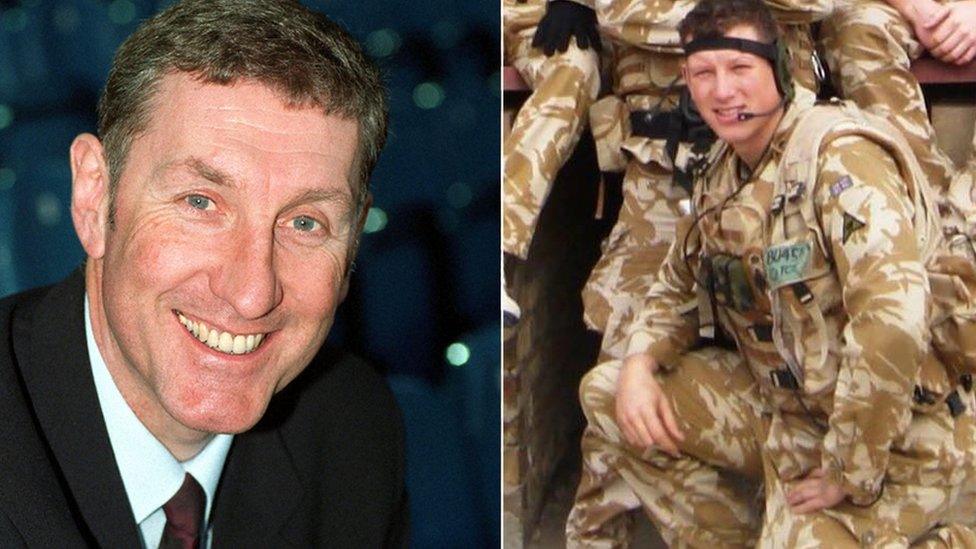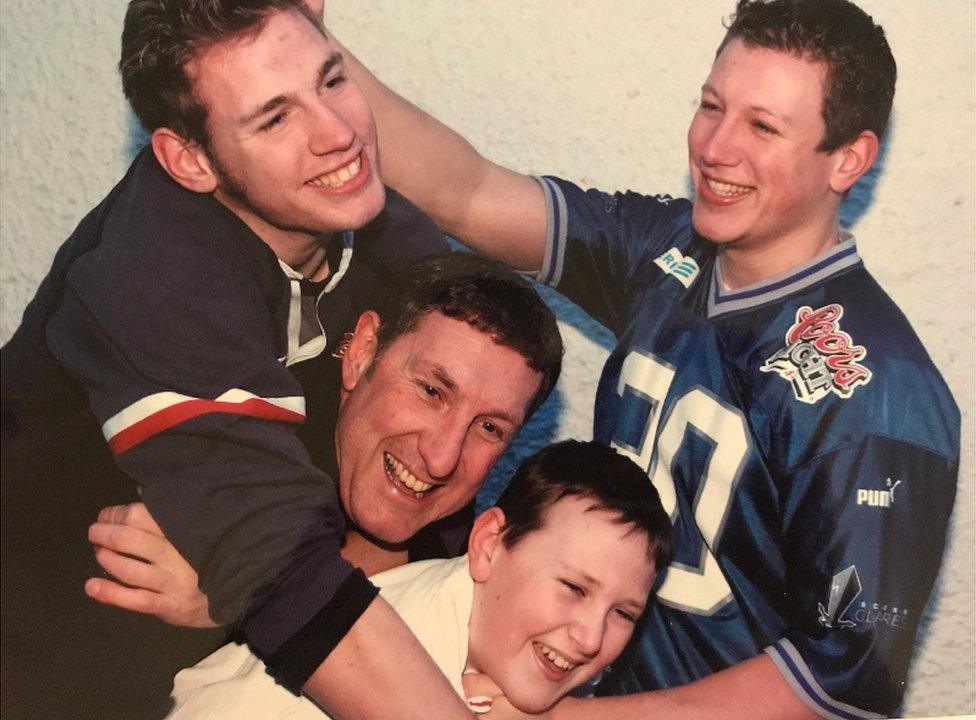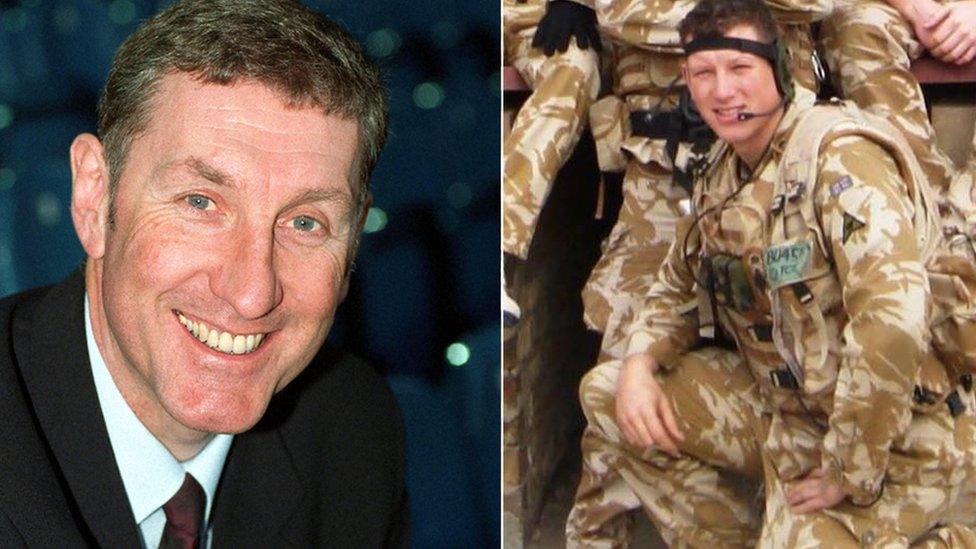Terry Butcher's son was 'victim of war' inquest told
- Published

Terry Butcher, left, said his son had been a "victim of war"
The son of former England football captain Terry Butcher was a "victim of war", an inquest heard.
Christopher Butcher, 35, was a captain in the British Army and served in Afghanistan with the Royal Artillery.
But on his return he turned to drugs as he battled post-traumatic stress disorder (PTSD), the inquest in Ipswich heard.
He died at the family home in Bawdsey, Suffolk, on October 16 2017.
The inquest in Ipswich concluded Christopher died of an abnormal enlargement of the heart, of uncertain cause, combined with the effect of drugs against a background of PTSD.
His father said at Monday's hearing that Christopher's life "spiralled downwards as the demons took control of his mind" and he "became a victim of war" after tours of Iraq and Afghanistan.

Christopher Butcher died at the family home in Bawdsey, Suffolk, on October 16 2017
Dan Sharpstone, Suffolk's assistant coroner, said: "When people serve in the armed forces they give everything in the defence of our country.
"This may result in death, or serious mutilating physical injury. However, it may also result in the agony of serious mental illness.
"Such men and women are ultimately casualties of war, deserving of both our sympathy and our utmost gratitude and respect."
Terry Butcher previously said he was "devastated" by the death of his son.
Butcher won 77 caps for England and appeared at three World Cups during his playing career.
He also played for Ipswich Town where he made more than 250 appearances in the 1970s and 1980s, and has managed several clubs including Sunderland, Motherwell and Inverness Caledonian Thistle.
A Ministry of Defence (MoD) spokesman said: "This is a tragic case and our thoughts remain with the family and friends of Christopher Butcher."
The MoD said it was committed to providing troops and veterans with the "care they deserve", and it had increased spending on mental health to more than £22m.
- Published19 October 2017

- Published17 October 2017
